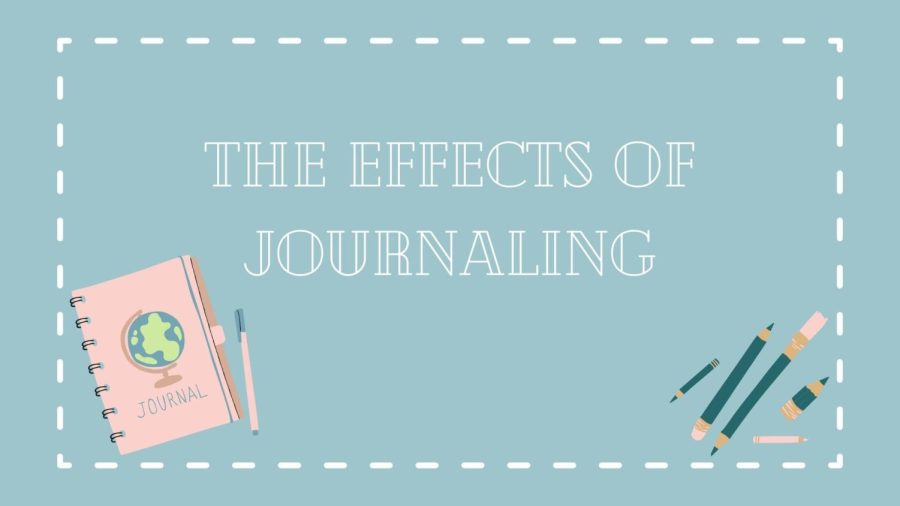Benefits of journaling
Individuals write daily for things such as school, work, and much more, but writing accomplishes more than completed assignments. It comes with a tremendous amount of benefits but mainly mental health benefits. Journaling can take place anywhere and anytime someone needs or wants to journal. Anyone can do it no matter their age and can even reap the different benefits journaling offers.
November 30, 2021
Keeping a journal remains one of the most popular activities under the large umbrella that constitutes writing. Individuals journal for numerous reasons, but journaling for mental health benefits. Benefits include reduced stress, elevated moods, strengthened emotional functions, and lastly keeping memories sharp. People ideally write in their journals a couple of times a week. Individuals also write at different times of the day, typically either in the morning or nighttime, depending on the different benefits.
“I journal daily at night time for multiple mental health benefits. Mainly to help me reduce stress going on in my private and public life. I tend to write about how my days went and what I disliked or liked about them. Then on rough days I just spill all of my emotions on one piece of paper so I do not keep them inside. Every now and then I get emotional which helps me mentally and not make the same mistakes in the future,” senior Nicolas Crupi said.
Various people journal for fun and add other elements into their writing to make it a more enjoyable activity. Organizing one’s thoughts into listed out bullets falls under the term of bullet journaling. It remains a close relative to writing in a diary. Instead of just writing, people also draw in their bullet journals. Bullet journals also have different types of paper than regular journals, instead of lines the pages have sporadic dots. Bullet journaling comes with different organizational benefits that regular journaling could not provide. For instance, numerous people who bullet journal create a budget/exchange tracker to help stay in order when it comes to saving and spending money which overall helps with an individual’s anxiety and reduces stress. In bullet journaling especially, the people who enjoy art tend to also doodle in their journals which come with other various mental health benefits. Such as releasing feelings in a non-destructive way, gaining insight and confidence, and lastly helps to organize actions taking place in daily life.
“Before I figured out what bullet journaling was I would write about how every day was and what I enjoyed and disliked about it. I always wanted to add more creativity but was not really sure how to until I learned about bullet journaling. Once I got into bullet journaling I could write about my daily life while also adding some artistic flair while also expressing my emotions through the art. I still do it daily and have noticed how much bullet journaling helped me through some tough times,” said senior Kenneth Pagan-Portes.
Both types of journaling have a tremendous amount of tiny differences and similarities. Differences such as the amount of time each day people spend time doing each activity and why they do it at that time. Every individual does either type of journaling differently depending on all their needs and wants. All types of journaling help with mental health and produce several other benefits.






